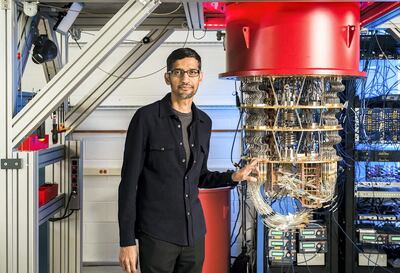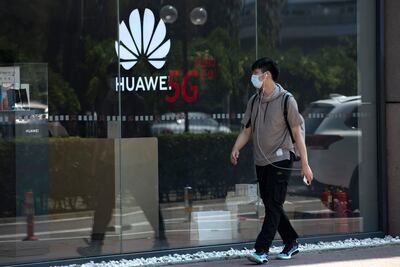Colonial powers such as Britain and Belgium are being made to own up to their brutal imperial past. Their schools are being urged to teach more about it. Monuments related to that history are also being reviewed.
It is of course right and well overdue that we have a full and frank discourse about colonial actions. Years from now, perhaps, there will also be a similar discussion about the current wave of digital colonisation that is going on almost unchecked across the world.
Our digital existences have been taken over by Google, Facebook, Amazon and other large US technology firms in their relentless accumulation of users and our online data. Their endeavours have created trillions of dollars in corporate value. The benefit of that is going to their shareholders, including the world’s richest man Jeff Bezos, the founder of Amazon.
These companies might well argue that they provide opportunities for people and countries to advance their digital ambitions, supporting a more prosperous and healthy future through the deployment of their technologies. The truth is that any benefits received by a society from Google, Facebook and other companies are secondary to the main goal, which is simply and undramatically global domination. Take, for example, what is playing out in India right now.

Google has become the latest big American tech firm to pledge a deeper commitment there with plans to invest $10 billion over the next five to seven years. The company's chief executive, Sundar Pichai, said on Monday: "This mission is deeply personal to me. When I was young, every new piece of technology brought new opportunities to learn and grow. But I always had to wait for it to arrive from someplace else. Today, people in India no longer have to wait for technology."
We hear the word "mission” a lot from those running or investing in companies in Silicon Valley. In fairness, the executives from there that I have personally met do genuinely believe that they are working towards that higher and more noble goal, and that bringing their services to as many people as possible can only be a good thing.
Such zealous corporate cultures are highly beneficial when companies are in the start-up stage with all the commensurate challenges and obstacles to survival. When talking about the world’s largest companies, however, it can create a tunnel vision that can do real damage.
A quarter-century since the creation of the World Wide Web, we are far less naive about the dangers posed by our more connected lives even as we appreciate the stunning benefits that the internet has brought our societies. That a handful of technology companies, all from the US, are now each more powerful than any government must present the chief worry, however.

Issues related to this dominance – such as the loss of jobs to the rapid digital transformation, protections for our privacy, a respect for local cultures, traditions and mores and perhaps most importantly, the funneling of billions in revenue offshore – must be adequately addressed. If not, we will be allowing an echoing of the colonial experience.
In the example of Google and India, what is $10bn over five or seven years? It is nothing to marvel at in terms of the scale of investment. It does not represent an emotional attachment or responsibility for the people there. It is PR.
Google made that much in profit in a single year in 2019. Its annual revenue was $162bn. By investing an amount of money that it can easily afford to lose, Google says what its priorities really are in India. Note that it is spending almost half that amount in a single deal with Reliance's Mukesh Ambani.
I will be curious to see how much real oversight and regulation of its activities Google will actually experience in India going forward. Or in any country for that matter.
Washington has proved unable or unwilling to administer any control over it and the other big technology companies. So, it seems the first country Silicon Valley colonised was its own.

Only China has shown any kind of resilience in the face of American digital expansionism. It retains its own cultural identity having learned better than most the painful lessons of the past. Officials still refer to the Opium Wars – 19th-century conflicts that led the defeated Qing dynasty to grant tariffs and territory to western powers – as if they only just happened.
Straight-faced Washington officials accuse the Chinese tech giant Huawei of being a threat on security grounds while shying away from the idea that allowing the digital space to be so beholden to a handful of American corporations is just as much a risk for any nation.
It is not too late for other governments and regulators to redress the imbalance.
The idea of digital taxes – being considered by France, India and other countries – is a very good start. Let the likes of Google and Facebook give back proportionately.
Governments can also do more to protect their own technology sectors as they have other strategic industries such as energy and defence.
As Canadian professor and philosopher Marshall McLuhan wrote in the 1960s in reference to the future of technology and the media, “once we have surrendered our senses and nervous systems to the private manipulation of those who would try to benefit from taking a lease on our eyes and ears and nerves, we don’t really have any rights left”.
Mustafa Alrawi is an assistant editor-in-chief at The National

